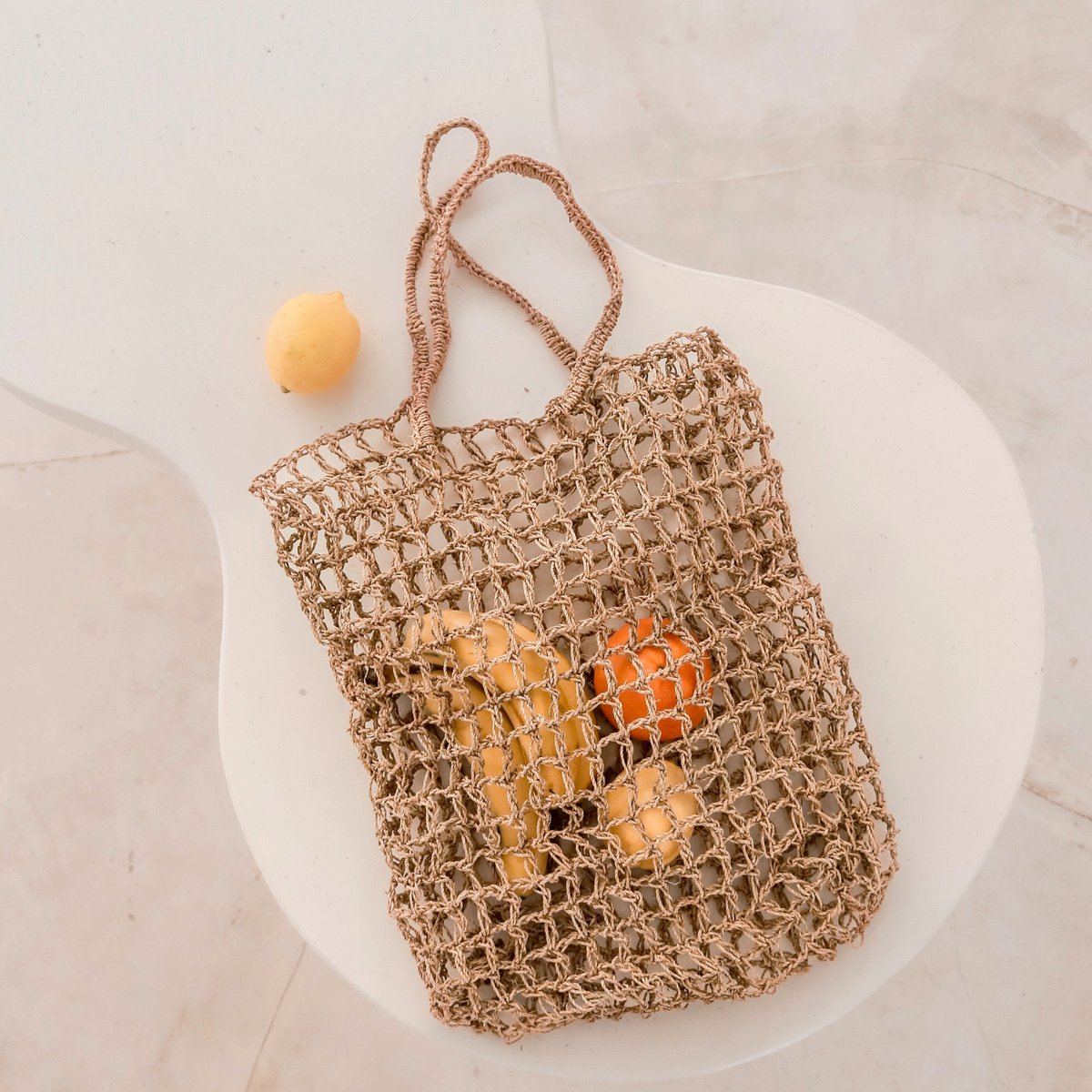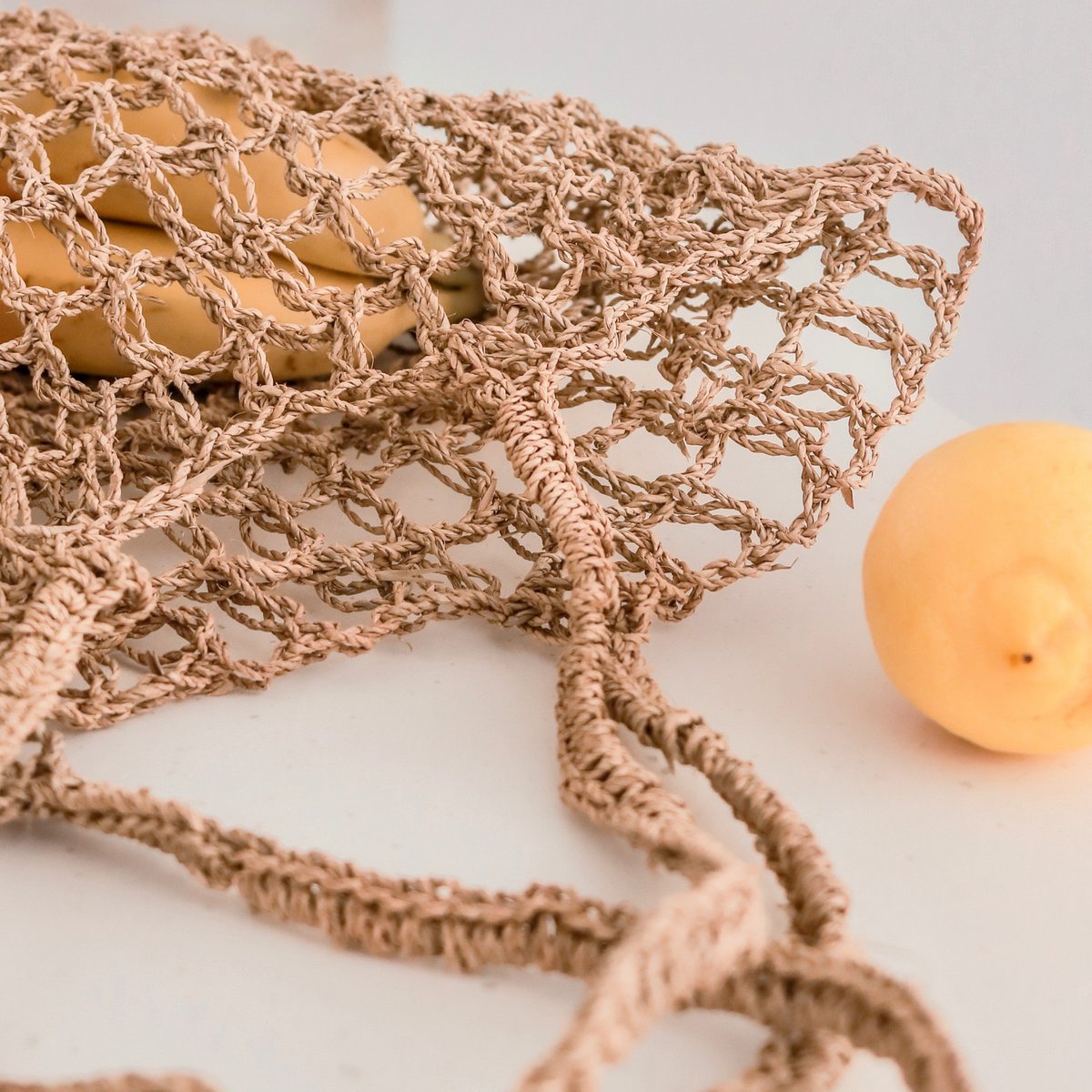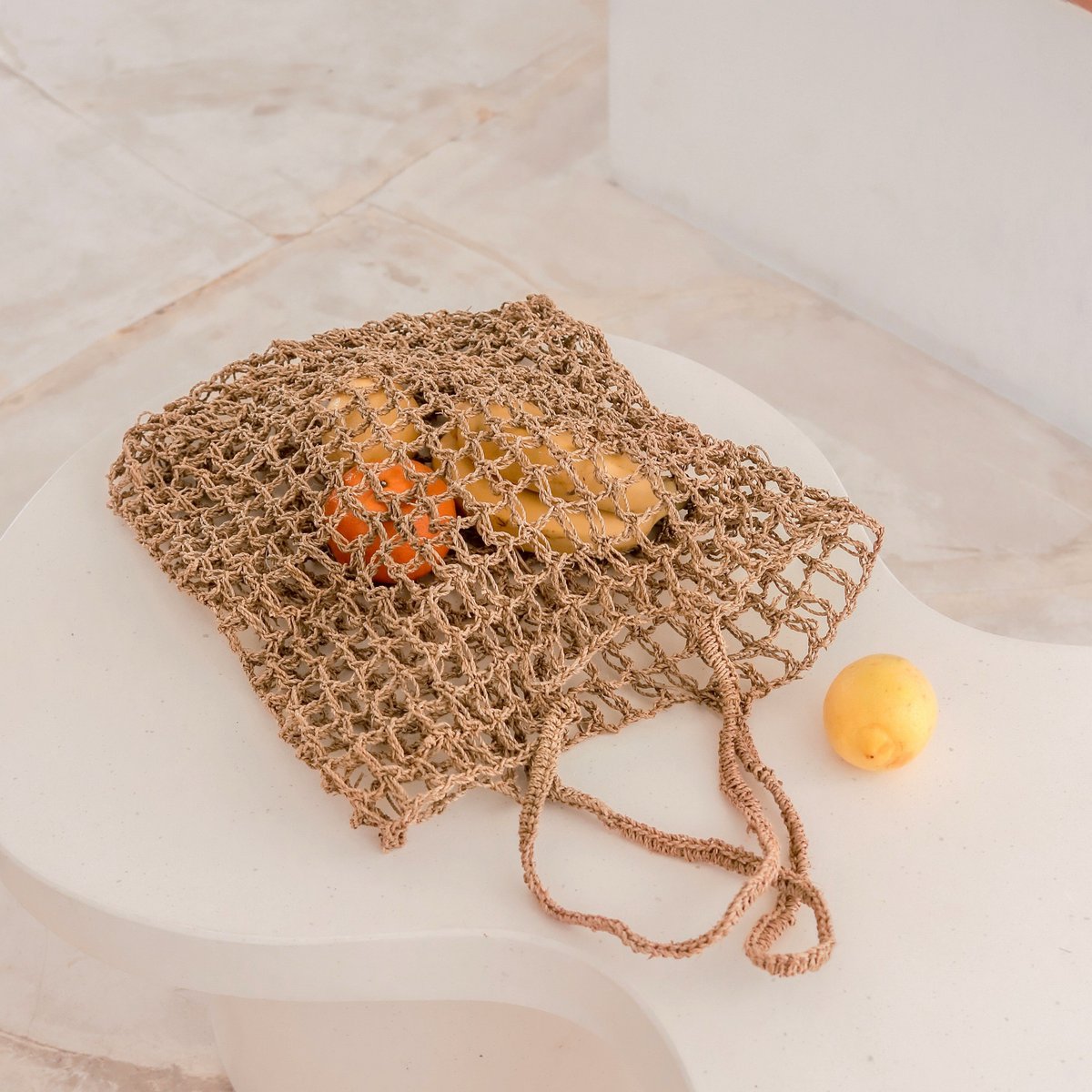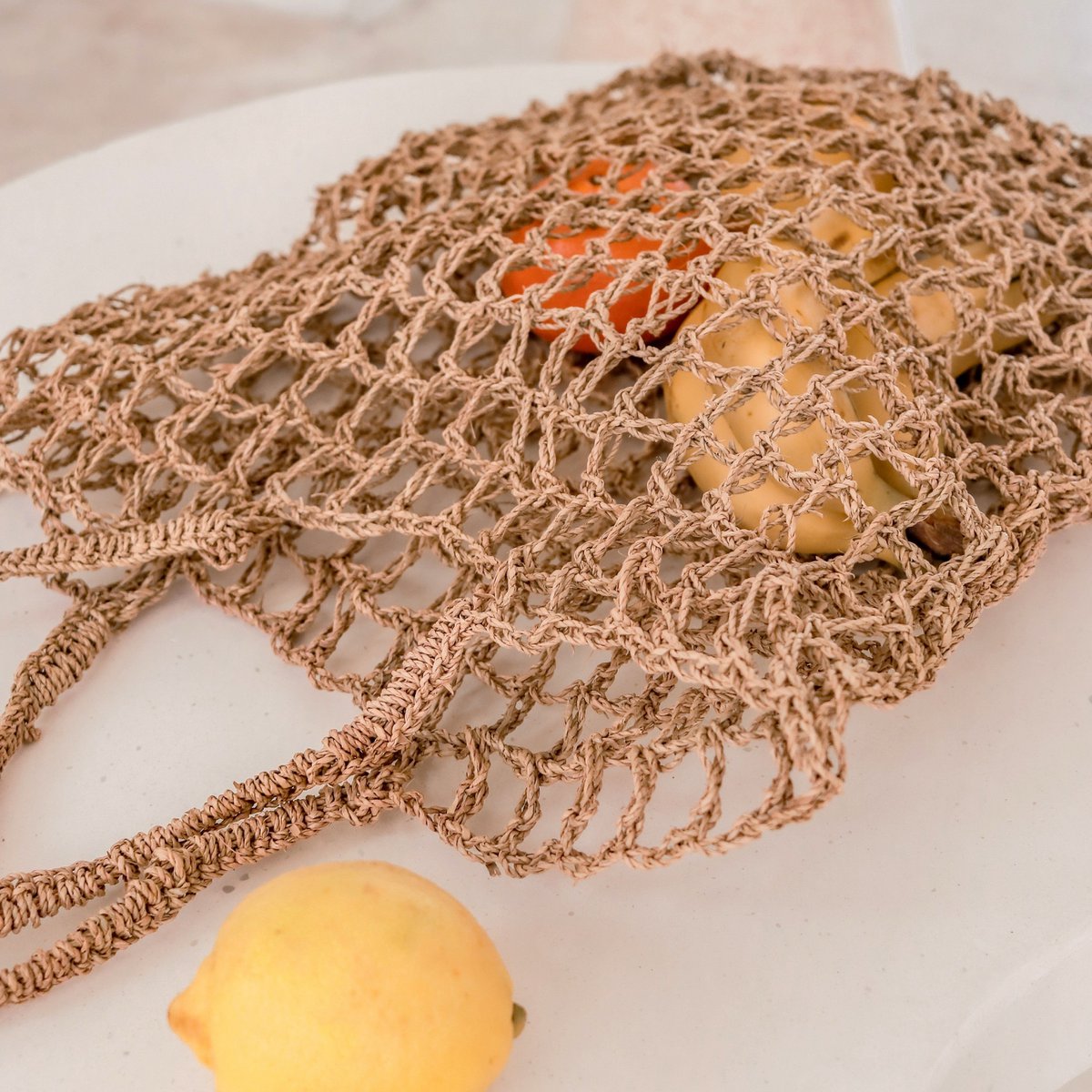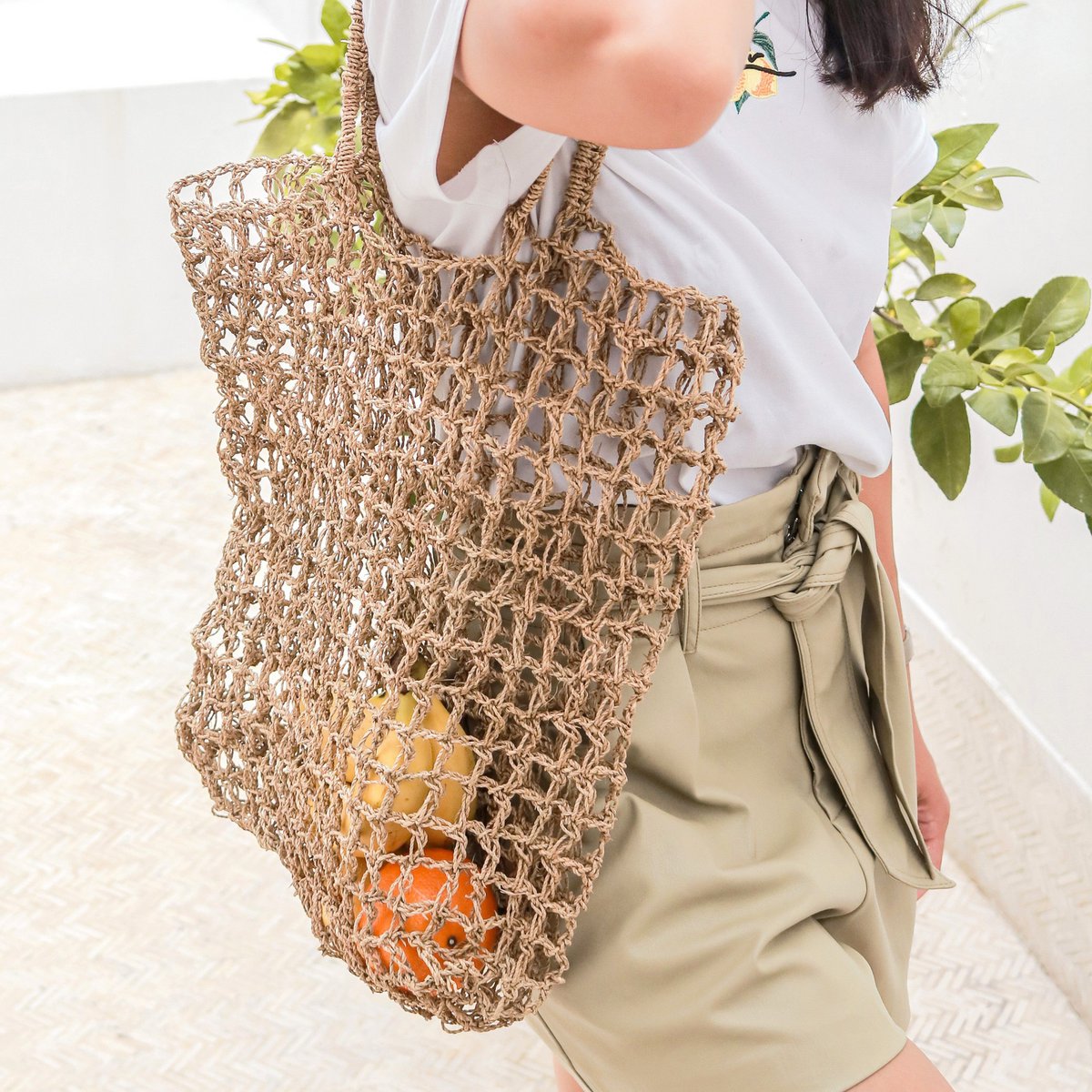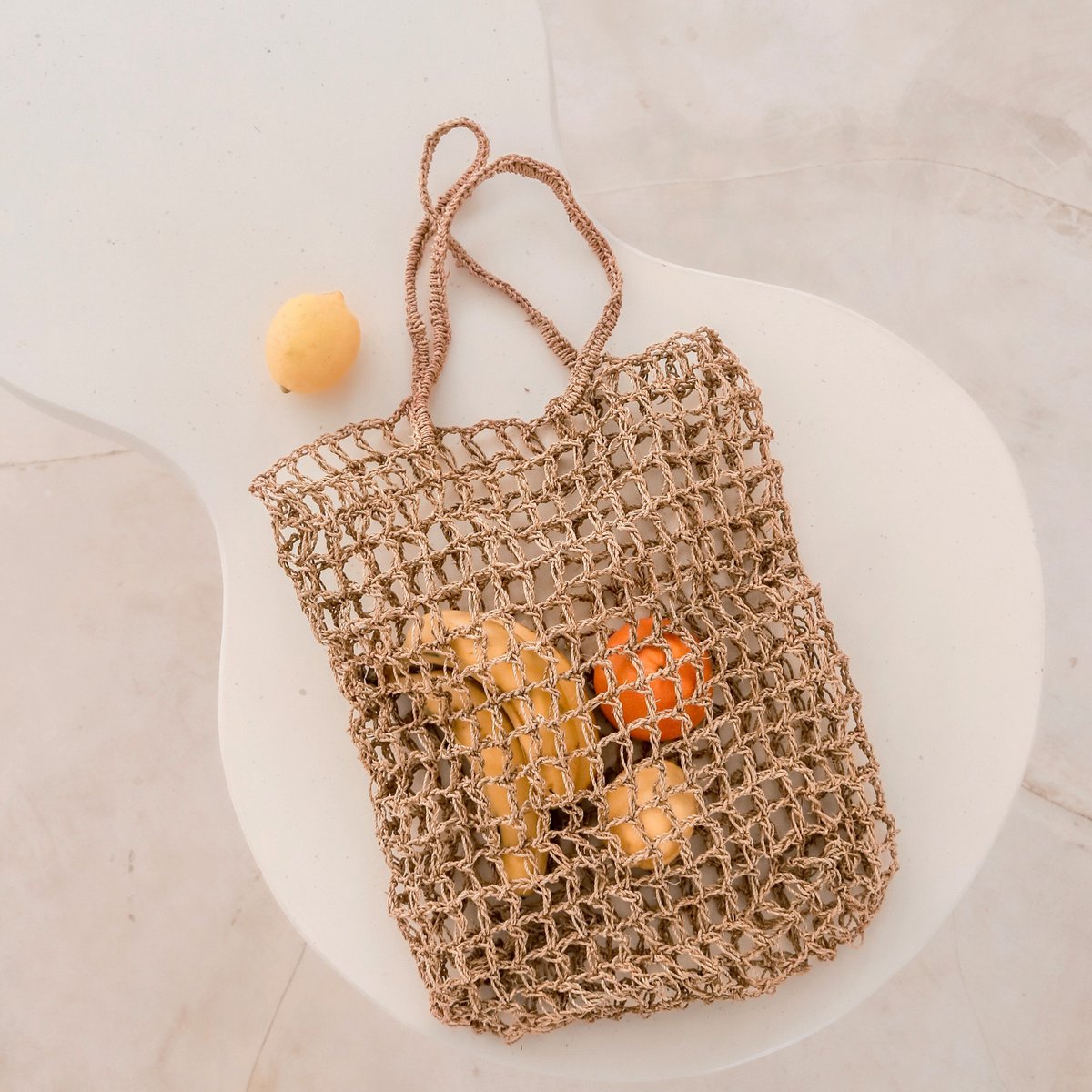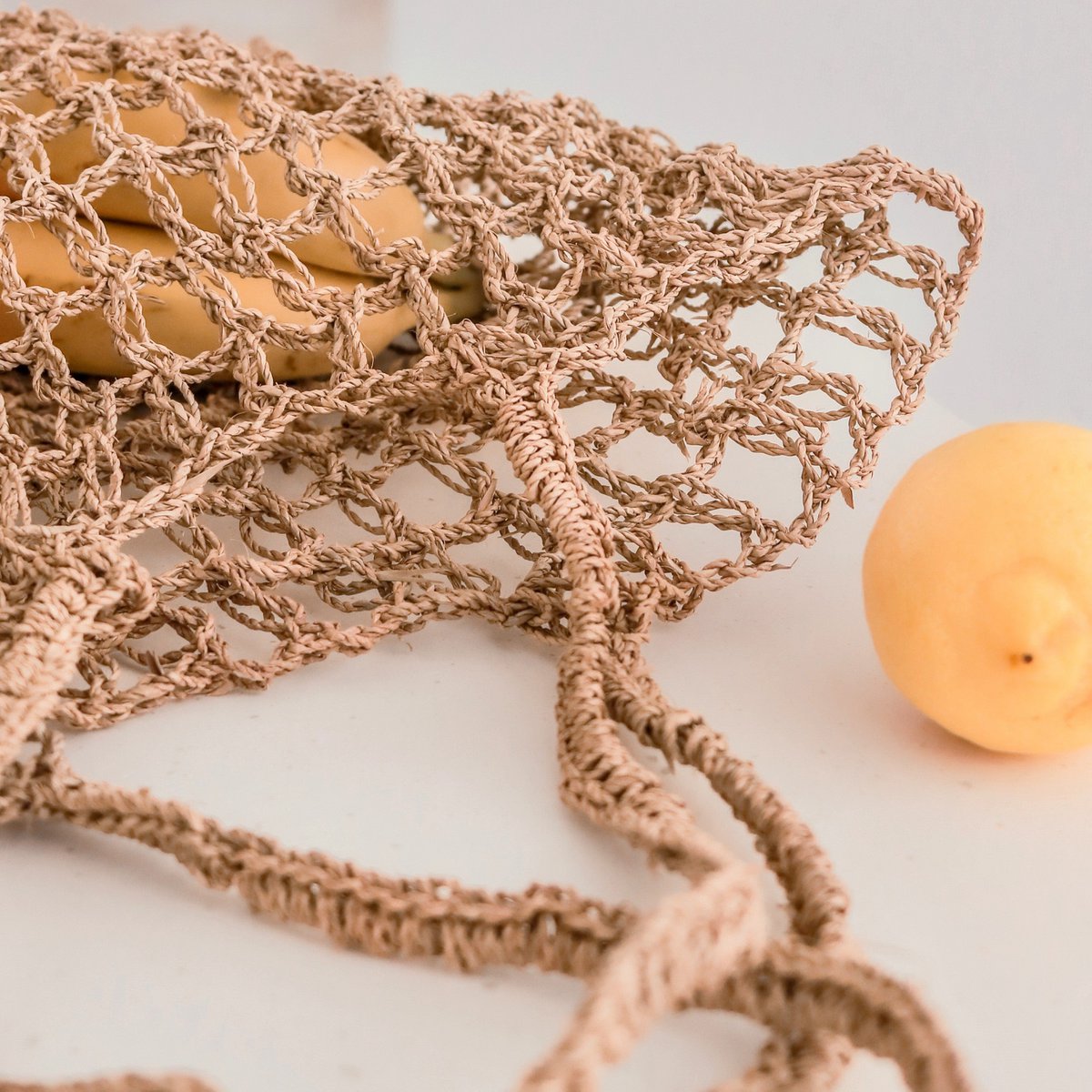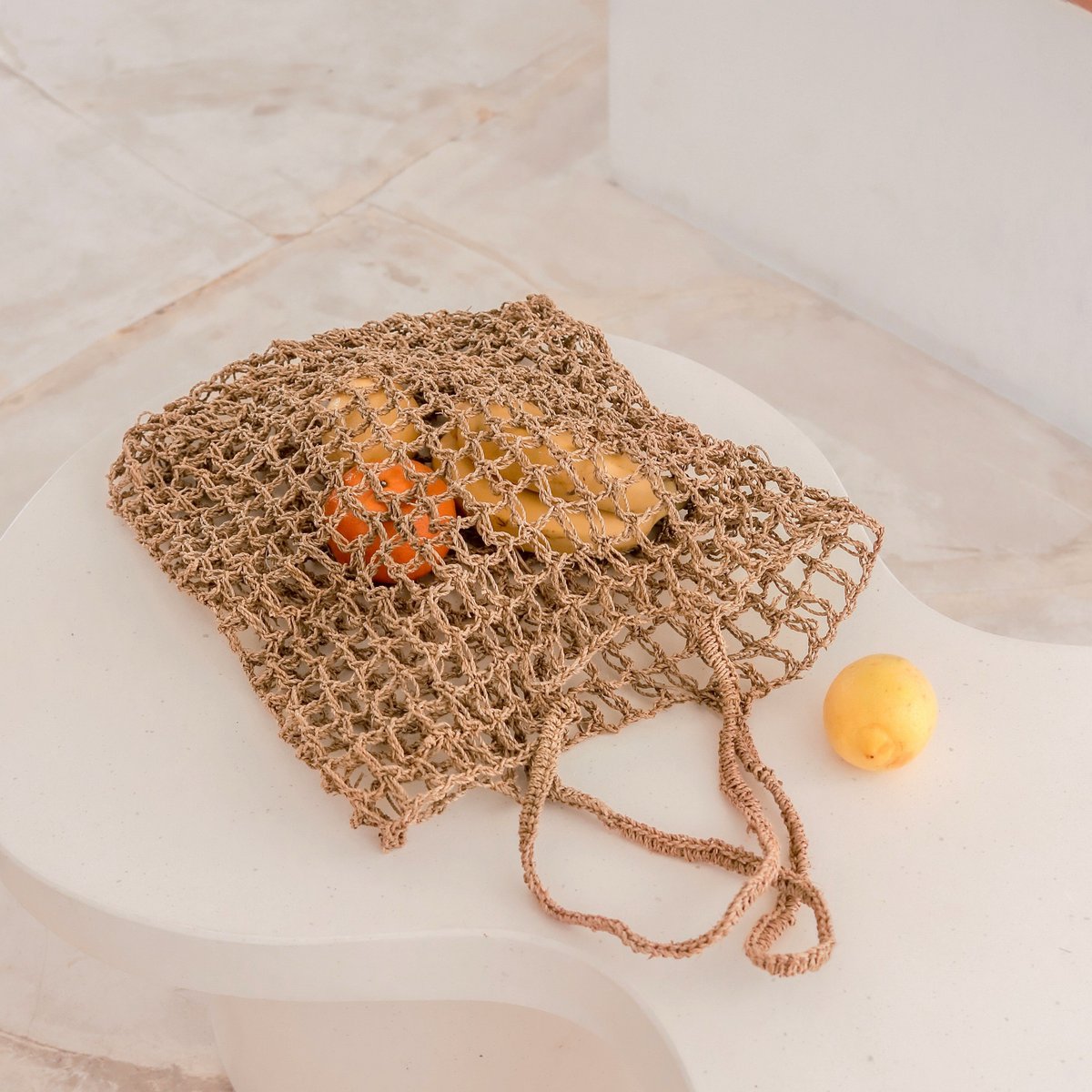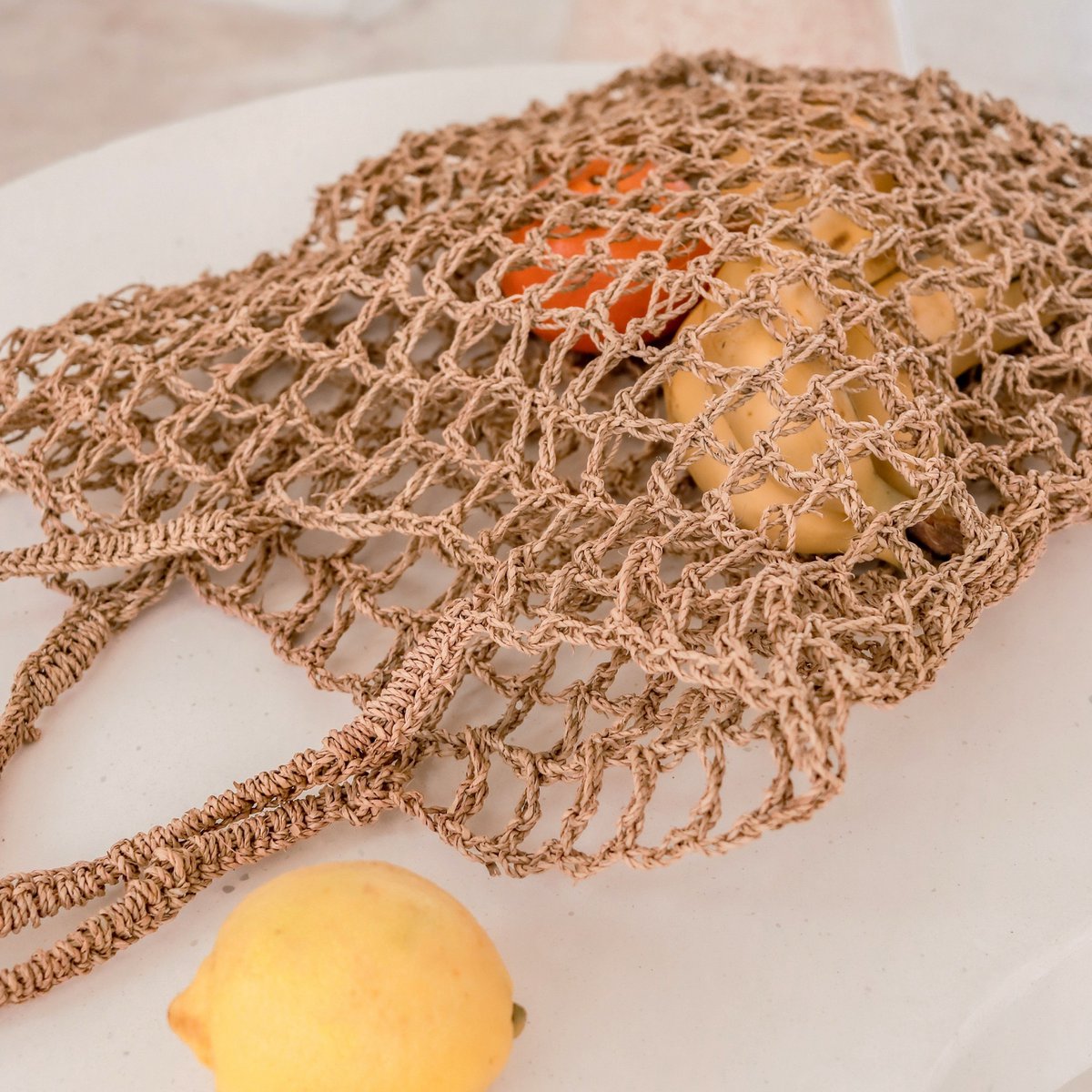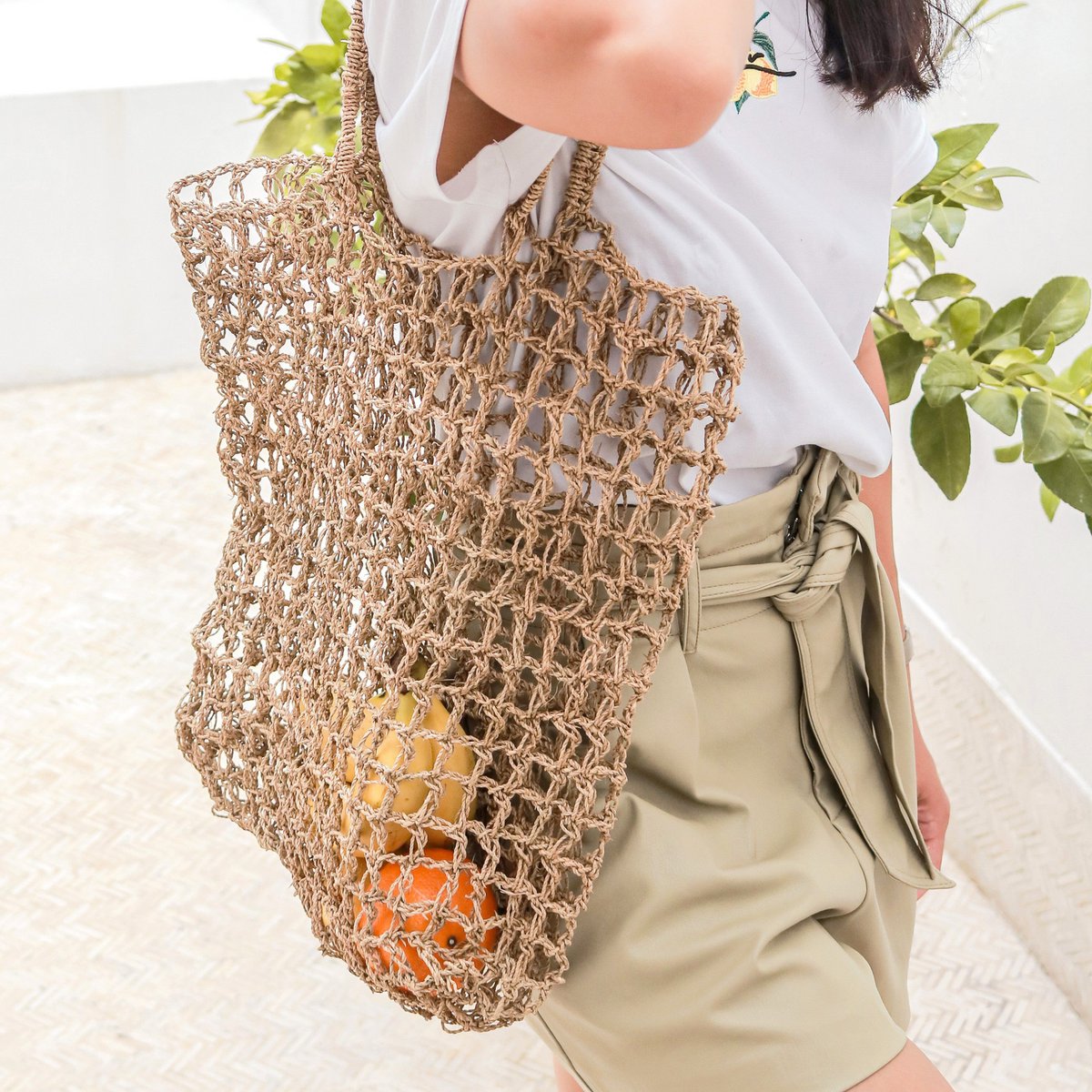Soeji
Raffia string bag, hand-woven shopping bag CANANG
Raffia string bag, hand-woven shopping bag CANANG
Couldn't load pickup availability
• Size 42 x 34 cm
• Robust raffia bag, easy to store and ideal for grocery shopping
• conveys a summery atmosphere in every season
• plastic-free packaging
• 100% handmade and fair trade
This simple bag is the ideal companion if you need additional storage space when shopping, on the way to work or at university.
To make canang, fine bast fibers are knotted into a square net shape. This makes it flexible and very light. The long handles allow you to carry the bag with your hands or over your shoulder. The bag can also be used in the rain because the robust material doesn't mind getting wet.
Dimensions: length x width
42x34 cm (without handle)
SOEJI products are artfully crafted unique pieces. Due to hand manufacturing and natural variations in materials, they may vary slightly in size, color and shape.
Material: raffia
These baskets & bags are made from plant fibers. They therefore smell and feel wonderfully natural.
Bast (Corypha utan) occurs naturally in the steppe and forest areas of Southeast Asia. The plant renews its leaves about every two years and sheds the old ones, which are then collected by people, dried in the sun for a few days to weeks and, depending on the desired degree of browning, made into wickerwork. The relative rarity and the higher processing effort make this material slightly more expensive compared to other plant fibers. While it is hardly known in Europe, the material has proven itself in Southeast Asia among the local population in the form of all kinds of everyday objects and is very popular due to its pleasantly soft but robust texture.
This bag was handmade in Java, Indonesia.
When selecting local producers, Soeji attaches great importance to fair pay and good working conditions. Only experienced and adult craftsmen work in the companies from which they purchase their goods. No harmful chemicals are used in production. Since all work steps are carried out by hand, the production process hardly produces any greenhouse gas emissions. The employees from Germany ensure all of this through regular on-site visits and permanent personal contact with the companies.
